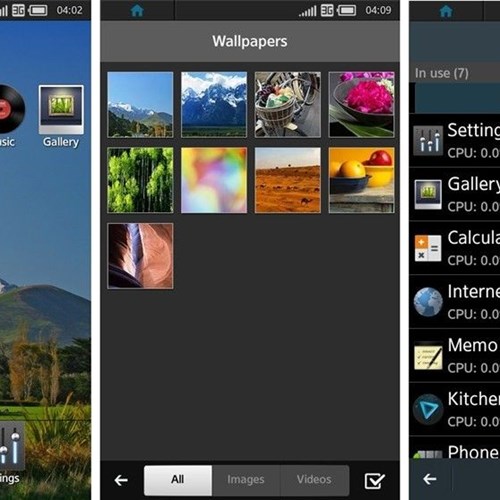As Mozilla prepare to launch a new Firefox-based operating system (OS) for cheaper phones in emerging markets, Samsung is taking on iOS, Android and Windows Phone with Tizen.
What is Tizen?
Tizen is a fully featured operating system developed by Samsung, and it’s designed to run on Samsung Galaxy S4 phones, as well as TVs and other connected devices from the Korean company.
Why is Tizen Happening? Doesn’t Samsung use Android?
Yes, most Samsung smartphones and tablets use Android, and this means that Google can sell apps, music and movies on each product. It seems Samsung want a piece of that pie. Tizen is an OS set up by Samsung but, crucially, Intel also is open for use on smart TVs and even car entertainment and navigation. Soon after Google announced they were buying Motorola and making a new smartphone, Samsung issued a statement saying, "We plan to release new, competitive Tizen devices within this year and will keep expanding the lineup depending on market conditions."
How is Tizen Different From Android?
Like Firefox OS, Tizen uses the HTML5 Web format, which means that mobile and desktop apps are easily accessible on the OS without the need for extra apps or plug-ins. This also makes it easier to develop Tizen than, say, iOS, because Tizen is an open format. This means developers can experiment with minimum outlay or third party authorization. The backbone of the system is Linux, a popular development tool. Wannabe developers also have been offered $4 million in prize funds from the Tizen Foundation for making impressive apps and games. Samsung is keenly aware that Microsoft and BlackBerry smartphones are still suffering from a lack of key apps, compared to iOS and Android.
Will Tizen use Android Apps?
Yes, but not as standard. A setting allows native use of Android apps, but expect the push to be on evolved versions that are unique to Tizen in a similar way to the Samsung Edition of popular Android apps, like Trip Advisor.
When Will Tizen be Released?
On November 9, 2013, Tizen released its latest version 2.2.1 platform and software development kit (SDK). Samsung’s principal engineer, Alvin Kim, spoke about the relationship between Android and Tizen, commenting that he hopes “some devices will be given to the market by the end of [2014].” Leaks have hinted at a Galaxy S4 running the OS, fueling speculation that it may reach existing smartphones, including the Galaxy S3, by early 2014.
Didn’t Samsung do This Before?
Yes, Bada was an early phone OS, and Intel also had a mobile operating system. Both failed in the face of iOS and Android. However, Tizen is an evolved joint effort between the two companies. Samsung is a major player in the smartphone, TV and tablet market, so there’s more chance of a bigger uptake, particularly in the East and for first-time smartphone users not already comfortable with iOS and Android. As a footnote, Samsung sold over 400 million smartphones in 2012 alone, globally.
What Does Tizen Look Like?
The color scheme and tiles blend the new look of iOS 7 with Windows Phone. Designed for Samsung fans and new smartphone owners, the focus is on speed and simplicity, although it’s expected to be highly customizable. J.K. Shin, Samsung’s co-CEO, told CNET that Tizen is more than just "a simple alternative for Android." Tizen also will allow users to open multiple windows to simultaneously view email and a Web browser, blurring the lines between desktop and mobile. Modern BlackBerry users will be familiar with the ability to preview a second screen while using another.
Will a Tizen Smartphone be Powerful?
A Qualcomm processor is expected to power a dedicated Tizen smartphone, but a 720p display on a prototype suggests that the smartphone will be a powerful but affordable device. After all, the key aim is to dent the spread of iOS devices, and a Tizen smartphone is expected to be a key rival for the iPhone 5c. Last year’s Tizen smartphone prototype featured a 1.2 Ghz processor and 1 GB of random access memory (RAM), offering a similar spec to a Nexus smartphone. Interestingly, both Fujitsu and NEC are developing Tizen smartphones that are likely to be high-end devices aimed toward Japanese business users.






